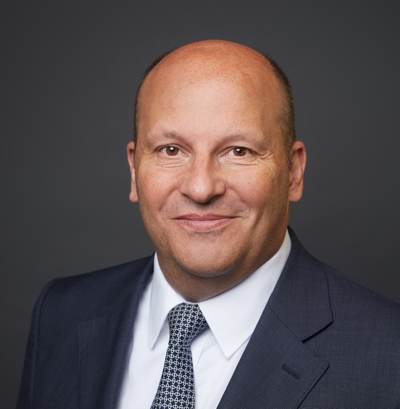Cyber risk offers the ILS markets a massive opportunity, albeit one with plenty of challenges attached, thinks Niklaus Hilti, Head of Credit Suisse’s insurance-linked securities (ILS) division.
 Speaking at the Rendez-Vous de Septembre he said cyber risk is now as important as property risk in a world that is increasingly reliant on technology. He echoed views expressed at the Munich Re ILS Roundtable on the second day of the conference, stating that while there were challenges, the re/insurance industry and capital markets is the natural home for cyber risk.
Speaking at the Rendez-Vous de Septembre he said cyber risk is now as important as property risk in a world that is increasingly reliant on technology. He echoed views expressed at the Munich Re ILS Roundtable on the second day of the conference, stating that while there were challenges, the re/insurance industry and capital markets is the natural home for cyber risk.
“I’m pretty sure that market will develop,” he told Artemis. “There will be setbacks and there will be surprises – it’s not a simple market – but it’s so important and certainly the values are enormous and so insurance will be an important element in the cyber market.”
Credit Suisse sponsored the innovative 2016 Operational Re transaction, which used Zurich as a fronting carrier to transfer a broad spectrum of the bank’s operational risks – including cyber – to the capital markets. Hilti however, was not certain if this would be the model for cyber risk transfer going forward.
Turning to natural catastrophe risk, he said that major losses in the fourth quarter could pose a technical challenge for investors, but dismissed the notion that investors could be less enthused due to the disappointing rating environment and loss creep that following last year’s trio of hurricanes.
“A loss in November or December could lead to more disruption than what happened after last year. There is a lot of capital waiting for opportunities but there are also technical limitations on how quickly that can be deployed.”
“I think a lot of investors would not necessarily be over excited from the first reactions in the market to the overall premium increases,” he added. “It did not really justify significantly growing the capital in my view, because it’s simply not enough opportunity.”
Hilti thinks it would take a single major loss in the region of $200 billion, or a series of surprises, to really turn the market. He pointed out that in 2005 Hurricane Katrina, as a ratio of overall industry capital, cost the industry roughly a quarter of its capacity.
“If you stick to that ratio, it’s probably more in the direction of $200 billion type of events where the sensitivity starts,” he said. “If we see another year of high loss activity and negative results in the industry, after a certain while I think this will have possibly an effect on the industry.”
He said a “fear element” could also change the direction of pricing. There are various scenarios that could cause this reaction, he thought. “There are regions of the world where there are enormous value concentrations these days, or it could be that the models are wrong or underestimate certain developments.”
“It can be litigation trends or the fear of climate change,” he continued. “If investors one day believe there is no margin to make due to climate change this could have a severe impact. But that is more driven by fear than actual risk.”
Regardless of the trigger, Hilti noted that the traditional reinsurance cycle had fundamentally changed. “Capital is now very agile going in and out and, as a result of that, we expect that overall the cycles will be less pronounced and the hard markets will be shorter and less extreme. That’s a result of a more efficient market and that’s the whole point of the ILS market.”
“I’m a big believer that ILS has reduced the pricing for catastrophe risk and volatility on the reinsurance side and therefore what insurance companies should actually do and is profit from this and sell more of these perils to customers again,” he continued. “This is something I expect should happen over the next couple of years because fundamentally these events should be paid by insurance companies rather than by taxpayers.”
“When you look at the economic losses versus the insured loss what you see is the gap is always increasing,” he added. “But in the new world with ILS there is more risk transfer becoming available from the end consumer to the capital markets.”
 View all of our Artemis Live video interviews and subscribe to our podcast.
View all of our Artemis Live video interviews and subscribe to our podcast.
All of our Artemis Live insurance-linked securities (ILS), catastrophe bonds and reinsurance video content and video interviews can be accessed online.
Our Artemis Live podcast can be subscribed to using the typical podcast services providers, including Apple, Google, Spotify and more.































